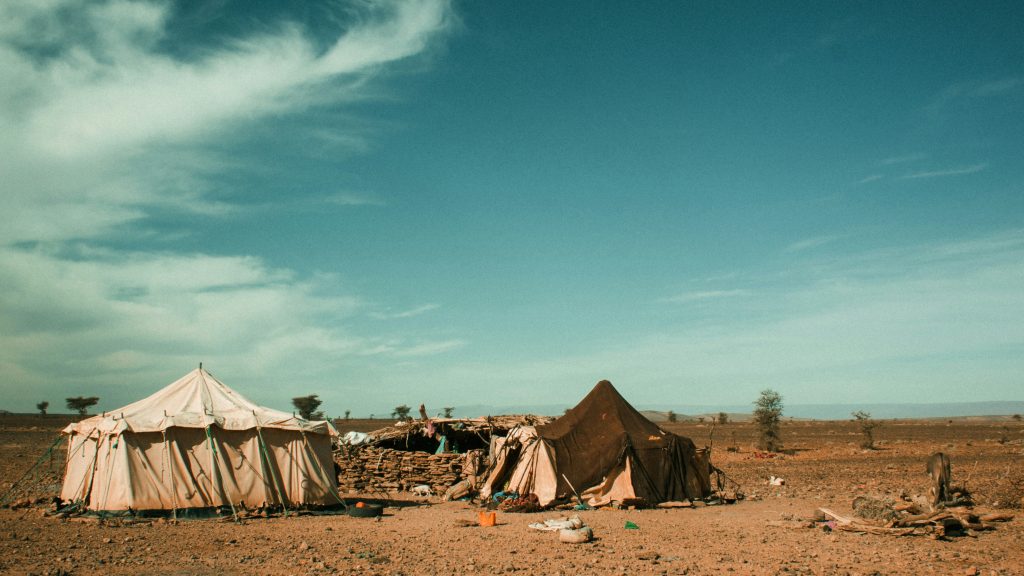Sudan’s Zamzam camp seized by RSF amid famine and mass displacement
3 min read
The RSF’s deadly assault on Zamzam camp deepens Sudan’s crisis of displacement and famine.
The brutal takeover of Zamzam camp by Sudan’s RSF leaves hundreds dead and deepens an already devastating crisis of famine and displacement.
In a devastating escalation of Sudan’s ongoing civil conflict, the Rapid Support Forces (RSF) launched a violent assault on the Zamzam displacement camp in North Darfur in April 2025. The brutal three-day operation resulted in the deaths of more than 400 civilians, including women, children, and humanitarian workers. Approximately 400,000 people who had taken refuge in the camp were forced to flee once again, amplifying what has already been described as one of the worst humanitarian disasters of the 21st century.
The RSF, a powerful paramilitary group that has been locked in conflict with the Sudanese Armed Forces (SAF) since April 2023, claimed that their attack on Zamzam was a necessary military operation. According to RSF statements, the SAF had been using the camp as a strategic base and employing civilians as human shields—a charge the SAF has denied. Regardless of justification, the assault has sparked international outrage, particularly given the camp’s vulnerable civilian population and its status as a humanitarian zone.
Zamzam was already in crisis before the attack. Located in a region plagued by chronic instability, the camp had become a fragile refuge for hundreds of thousands of internally displaced people, many of whom had fled earlier rounds of violence in Darfur and elsewhere in Sudan. In August 2024, famine was officially declared in the camp and surrounding areas, with aid agencies warning of imminent mass starvation. Supplies of food, clean water, and medicine were dangerously low, and access for humanitarian groups was already limited due to insecurity.
Following the RSF assault, international aid organizations have described the situation as catastrophic. Entire families have been uprooted once again, with many forced to flee into remote, barren areas where no aid can reach them. The United Nations and various NGOs have condemned the attack as a flagrant violation of international humanitarian law, citing the deliberate targeting of civilians and relief personnel.
“This is an atrocity,” said Fatima El-Sayed, a field coordinator for Médecins Sans Frontières. “Zamzam was one of the few remaining places where displaced people had a semblance of safety. To target it in this way is unconscionable.”
The broader context of Sudan’s civil war paints an even grimmer picture. Since the conflict began in April 2023, more than 12 million people have been displaced across the country. According to the World Food Programme, nearly half of Sudan’s population now faces extreme hunger, and famine looms in multiple regions. The fighting between the RSF and SAF has been marked by mass atrocities, including sexual violence, ethnic targeting, and deliberate attacks on healthcare and aid infrastructure.
The RSF’s seizure of Zamzam camp appears to be part of a larger strategy to consolidate control over key parts of Darfur, a region already deeply scarred by earlier conflicts and genocide. Analysts suggest that the paramilitary group, emboldened by its growing power, is attempting to assert dominance ahead of any future peace negotiations or territorial settlements.
Meanwhile, international responses have so far failed to halt the violence. While the United Nations and African Union have issued strong condemnations and called for investigations, tangible action has been limited. A proposed humanitarian corridor into North Darfur remains stalled due to ongoing hostilities and lack of coordination between warring factions.
Human rights organizations and Sudanese diaspora communities are now calling for urgent international intervention—not only to deliver aid, but also to pressure both the RSF and SAF to agree to a ceasefire and allow humanitarian access. The stakes could not be higher, they warn, as Sudan edges closer to a full-scale collapse.
For the survivors of Zamzam, the future remains uncertain. Many are now wandering without shelter, food, or protection. As one displaced mother, Asha, told a BBC reporter: “We escaped death once. But there is nowhere left to run.”





